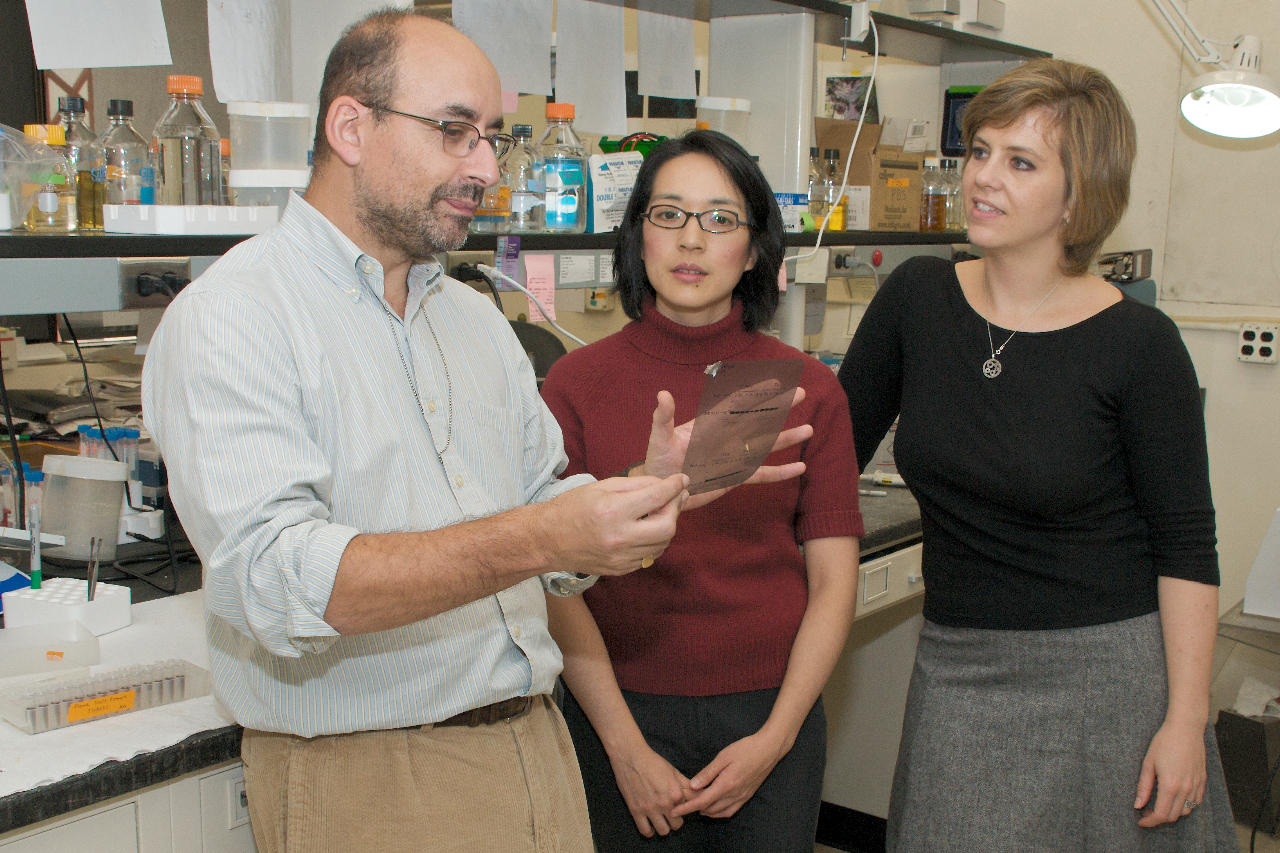Collaboration has long been recognized as essential to the advancement of scientific knowledge. While the nature of co-production of knowledge in collaborative settings has been studied for some time, little is known about how the process works in collaborations established and maintained through virtual organizations.
An interdisciplinary team of researchers at The City College of New York (CCNY) is studying how virtual organizations, where people work in different locations, sometimes halfway around the world, change and affect the production of scientific knowledge. They are supported by a new grant from the National Science Foundation (NSF) of $368,210 over three years. The investigators hope to identify the conditions under which virtual organizations can enable and enhance scientific production and innovation.
“It used to be that collaboration took place mainly within one laboratory, but now you can collaborate with people you don’t even know, said Dr. Maria Binz-Scharf, Assistant Professor of Management in the Economics Department at CCNY and Principal Investigator of the project. “The question is: How does greater access to shared data, new collaborators and information across time and space help improve the production of scientific knowledge, if at all?”
The CCNY team includes, in addition to Professor Binz-Scharf, Dr. Leslie Paik, Assistant Professor of Sociology and the project’s co-Principal Investigator, and Dr. Avrom Caplan, Professor of Biology and Associate University Dean for Research. They will focus their research on biologists, Dean Caplan among them, who study molecular chaperones, which are proteins that are part of a process called cellular quality control that promotes destruction of damaged proteins.
“It’s a fairly well-defined area with around 300 active researchers worldwide, so it is an ideal network to study,” Professor Binz-Scharf explained.
The investigation is being conducted in three stages. In the first stage, Professors Binz-Scharf and Paik will conducted an ethnographic study of Dean Caplan’s lab and those of three scientists he collaborates with. They will observe the scientists at work and ask questions about their work.
They will attend “virtual” meetings with collaborators, go through a typical work day with different scientists in the laboratory, and observe scientists work together in the laboratory (as well as across different laboratories).
The findings of this stage will be used to develop a questionnaire for use in a social network analysis of all 300 or so scientists in the field. In the final stage, a select group of the scientists will be interviewed in depth to determine whether their statements corroborate the data collected through the survey and the ethnographic observations.
“We not only want to see how scientists work, but question assumptions about how new technology improves the ways scientists collaborate,” said Professor Paik. “We want to see how the way science works is changing because of new technology.”
While technology can facilitate collaboration on a global scale, it remains to be seen whether it can overcome the human barriers, Professor Binz-Scharf noted. “In the end, it’s all about people having to come together and negotiate a social contract.”
The researchers hope to produce guidelines that can be applied to promote and maintain productive collaborations, she added. “We are looking at a specific field with specific norms, but we expect that many of the principles can be applied to virtual collaborations in other areas, including the social sciences.”
MEDIA CONTACT
Ellis Simon
p: 212.650.6460
e:
esimon@ccny.cuny.edu